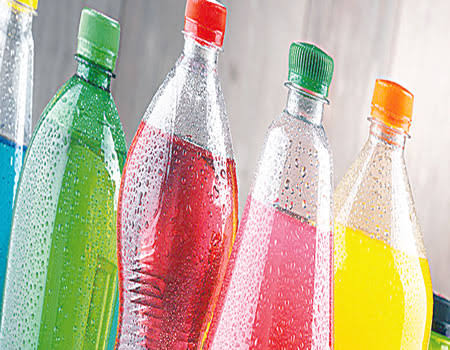Researchers have discovered a shocking link between regular consumption of soft drinks and mental health, disclosing that even moderate soda consumption may alter gut microbes in ways that raise the risk of depression, particularly in women, especially in women.
They found that higher soft drink consumption was associated with a 16.7 per cent increased risk for major depressive disorder (MDD) and more severe depressive symptoms in women. Surprisingly, this is not the case with high-sugar solid foods.
This link was significantly mediated by changes in the gut microbiome, particularly an increased abundance of the bacterium Eggerthella, which explained 3.8 per cent of the effect on diagnosis and 5.0 per cent on symptom severity.
Lead investigator Sharmili Edwin Thanarajah, MD, at the University Hospital Frankfurt, Goethe University in Frankfurt, stated that the findings add to the growing evidence that high intake of sugar-sweetened and artificially sweetened beverages is linked to depression risk and severity.
He declared, “Physicians should consider asking patients about soft drink consumption as part of routine dietary assessment, particularly in those with or at risk of depression, and encourage reducing intake as part of a broader strategy for both physical and mental well-being.”
The study published in JAMA Psychiatry included 932 participants: 405 patients meeting Diagnostic and Statistical Manual of Mental Disorders criteria for MDD (67.9 per cent women; mean age, 36 years) and 527 healthy control individuals (65.5 per cent women; mean age, 35 years).
The groups were similar in terms of sex and age but differed significantly in BMI and years of education. Mean BMI was 26.04 for the MDD group vs 24.08 for the control group, and mean years of education were 13.45 for the MDD group compared with 14.10 for the control group.
Higher soft drink consumption was associated with a small but significant increased risk for MDD diagnosis in the overall cohort.
The association was stronger in women who drank larger amounts of soda, who were 17 per cent more likely to have MDD than women who drank less. There was no significant effect observed in men.
Depressive symptom severity was also linked to soft drink intake, with higher consumption associated with worse symptoms in the overall cohort. But this effect, too, was driven by women, while men showed no significant effect.
The link between soft drink consumption and MDD diagnosis, as well as symptom severity, remained significant in women after controlling for BMI, antidepressant use, education, and total calorie intake. The relevant effects were not significant in men.
It’s unclear why the relationships are stronger in women, but biological or hormonal differences likely play a role, researchers said. A higher proportion of women in the study may limit the interpretation of findings in men, they added.
These findings emphasise the need to educate consumers about the dangers of soft drinks to mental health. They also support policies that restrict the marketing and availability of soft drinks, as physical activity alone cannot compensate for the effects of soft drink intake.
Soft drinks are wildly popular worldwide, especially among children and teenagers. They are loaded with empty calories, mostly simple sugars like glucose and fructose, which push up blood glucose levels. They are also associated with obesity, diabetes, heart disease, stroke, and cancer.
WARNING: If You Are Not 18+, Don’t Click The Link Below 👇🫣
https://rayvirtual.com/m3e85u39j?key=f0014e9d9438d5115e4d66e73ca3f04b
Please don’t forget to “Allow the notification” so you will be the first to get our gist when we publish it.
Drop your comment in the section below, and don’t forget to share the post.
Never Miss A Single News Or Gist, Kindly Join Us On WhatsApp Channel:
https://whatsapp.com/channel/0029Vad8g81Eawdsio6INn3B
Telegram Channel:
https://t.me/gistsmateNG















